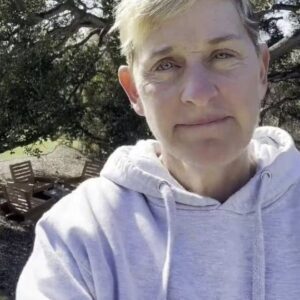Rachel and her husband, Jack, were over the moon when, after years of trying, they became parents to five children at once. Their family finally seemed complete. But one day, their happiness was shattered when Jack di:ed in a car accident.
Now Rachel was alone to care for their five children, juggling work and motherhood. She barely had enough to live on, and one day at the store, her desperate situation came to a head.
“How hard is it to check the prices?” the cashier grumbled at Rachel. “You’re $10 short!”
“Umm… let’s do this. I’ll remove the bread, and…” Rachel began picking out items to remove, but the cashier had grown impatient and snapped at her.
“Look, lady! If you can’t afford this stuff, don’t come here! Now move! Other customers are waiting!” She pushed Rachel’s bag aside. “Next!”
“No, please, wait…” Rachel had just started speaking when a voice from behind cut her off.
“There’s no need to remove those items. Your bill is already covered,” said an unfamiliar voice behind her.
Rachel turned around slowly, blinking through the sting in her eyes. Behind her stood an older man, tall and dressed in a faded army jacket, holding a gallon of milk and a pack of eggs.
“Sir… I can’t let you—” she started, her voice catching.
He smiled, eyes kind but tired. “You didn’t ask. And I’m not doing it for thanks. I’ve been in your shoes.”
The cashier rolled her eyes. “Whatever. Are you paying or not?”
The man stepped forward, pulled out a worn leather wallet, and handed over a crisp twenty. “Add that bread back.”
Rachel clutched her bag of groceries tightly as the beep of the register rang out again. She didn’t know what to say. The cashier bagged everything without another word. Rachel turned to the man.
“I… I’m Rachel. Thank you. I didn’t know what I was going to do.”
He gave a nod. “Name’s Carl. Just… keep going, Rachel. That’s all.”
She stepped aside with her bag as the next customer moved forward, but something inside her wouldn’t let it go. She waited by the doors until Carl had paid for his few things and started walking toward the exit.
“Can I ask you something?” she said.
He stopped. “Sure.”
“Why’d you help me?”
Carl hesitated. Then, in a low voice, he said, “I was raised by a single mom. My dad left when I was four. She worked two jobs, sometimes three. There were nights we ate crackers and ketchup for dinner. I remember standing in stores just like that, holding back tears. Someone helped us once. Only once. But I never forgot.”
Rachel felt tears rise again. “I don’t know how to repay you.”
“Don’t. Just pay it forward when you can.”
Later that night, as she tucked her youngest into bed, Rachel thought about Carl. About how one act of kindness could carry someone for years. But also… about how the cashier had looked at her. Like she was a problem. Like she wasn’t supposed to exist.
That feeling sat with her. Heavier than she expected.
The next day, after dropping the kids at school and daycare, Rachel sat in her car outside the store. She knew it was stupid, but something made her walk back inside. Not to complain. Not to yell. But to talk.
She found the store manager, a middle-aged woman named Donna with kind eyes, and quietly asked for a moment.
“I’m not trying to get anyone in trouble,” Rachel said, “but I wanted to share something that happened yesterday.”
She told her about the cashier, about Carl, and how humiliated she had felt. Donna listened carefully. “Rachel, thank you for telling me. That’s not how we treat anyone, ever. I’m so sorry.”
Rachel nodded. She didn’t feel better exactly, but she felt heard.
As she turned to leave, Donna said, “Actually… if you’re looking for part-time work, we could use someone with your heart. Even just evenings or weekends. You’d get an employee discount too.”
Rachel blinked. “Wait—are you serious?”
“Dead serious.”
She started that weekend. It wasn’t much—just stocking shelves on Saturdays and bagging groceries after dinner a couple nights a week. But the employee discount helped, and she made a little extra to stretch their budget.
And as the weeks passed, Rachel noticed something else. More and more, she found herself stepping in when someone else came up short. A few dollars here, an extra coupon there. She remembered what Carl had said.
“Just pay it forward.”
She didn’t tell her kids everything. But when her ten-year-old, Lily, asked why Mom always smiled at strangers now, Rachel just said, “Because we never know who might need it.”
Months went by. Summer turned to fall, and Rachel found her rhythm again. Not perfect, not easy—but steadier. She even began working early morning shifts so she could be home for dinner. One Tuesday morning, as she stocked cereal boxes, she heard someone say her name.
“Rachel?”
She turned. It was Carl.
He looked a little older now, and his arm was in a sling.
“Oh my gosh—what happened?”
“Old shoulder injury acting up,” he chuckled. “Didn’t expect to see you here.”
Rachel smiled. “I work here now. Kind of thanks to you.”
Carl raised an eyebrow.
She explained—how she had come back the next day, how the manager offered her a job, how things had slowly changed.
“I even started a little support group,” she added shyly. “Single moms who meet once a week. We swap meals, babysitting, job tips. It’s small, but… it matters.”
Carl looked genuinely moved. He rubbed his good arm. “You’ve done more than pay it forward. You built something.”
Rachel felt her throat tighten. “I think… I just needed one person to see me. That day, you were that person.”
Carl smiled. “Sometimes, that’s all it takes.”
Not long after, Rachel wrote a post online about what had happened that day in the store. She shared the moment with Carl, the change it sparked, and how something as small as a $10 bill could ripple into something so much bigger.
She ended the post with this:
“If you ever feel like what you do doesn’t matter, remember this: kindness doesn’t disappear. It multiplies. One act at a time.”
The story spread like wildfire. Comments poured in from other moms, strangers, even former employees of that store who remembered her.
And Rachel? She didn’t become rich or famous. But she became something better—anchored. She wasn’t just surviving anymore. She was living. With purpose.
And every time she saw someone struggling at her register, she remembered Carl, and gently whispered, “I’ve got you.”
If this story touched you, take a moment to share it. You never know who might need to hear it today.





